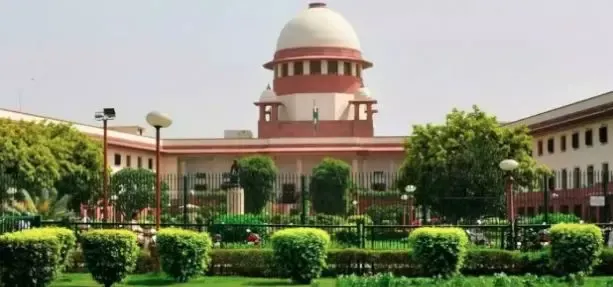Supreme Court Rejects Plea on Adani-Hindenburg Issue

Synopsis
Key Takeaways
- The Supreme Court upheld SEBI's authority in the Adani-Hindenburg investigation.
- Investigation reports from third-party organizations are not considered conclusive.
- The court dismissed a review petition regarding the establishment of an SIT.
- Pending investigations must be completed within three months.
- Government urged to strengthen regulatory frameworks for investor protection.
New Delhi, Jan 27 (NationPress) The Supreme Court has reaffirmed an order issued by the apex court registry in August 2024, which denied a lawyer's plea urging SEBI to present its definitive investigation report regarding the Adani-Hindenburg controversy.
Advocate Vishal Tiwari had filed an appeal against the Registrar's decision dated August 5 of the previous year.
Previously, on July 15, 2024, the Supreme Court dismissed a review petition challenging its earlier decision not to establish any SIT or expert group for the investigation. After reviewing the petition, a bench led by then CJI D.Y. Chandrachud stated that there was no evident error in the record.
"No case for review under Order XLVII Rule 1 of the Supreme Court Rules 2013. Thus, the review petition is dismissed. Any pending applications are also resolved," the Bench, which included Justices J.B. Pardiwala and Manoj Misra, added.
In a comprehensive ruling issued on January 3, the Supreme Court stated that reports from external organizations, such as the Organized Crime and Corruption Reporting Project (OCCRP) and Hindenburg Research, cannot be deemed as "conclusive evidence".
It emphasized that reliance on newspaper articles or third-party reports by PIL petitioners "fails to instill confidence" to challenge the thorough investigation performed by SEBI.
The apex court clarified that the circumstances of the case did not justify transferring the investigation away from SEBI, instructing the market regulator to conclude its inquiry in accordance with the law.
Furthermore, the SC warned against the inclusion of unverified and irrelevant information in public interest litigations (PILs), noting that pleas lacking sufficient research and based on unverified data are often "counterproductive". However, it encouraged the Central government to considerably review the recommendations made by the expert panel led by former apex court judge Justice A.M. Sapre.
"The Government of India and SEBI will undertake any requisite actions to fortify the regulatory framework, ensuring investor protection and the smooth operation of the securities market," it stated. The apex court directed SEBI and other investigative bodies of the Union government to examine allegations of short selling that have led to investor losses.
It acknowledged that SEBI has already concluded 22 out of 24 inquiries related to claims against the Adani group and, concerning the remaining two cases, the market regulator is awaiting data from foreign agencies and entities to inform its subsequent actions.
However, the Supreme Court insisted that these outstanding investigations should be wrapped up "swiftly within a period of three months".










